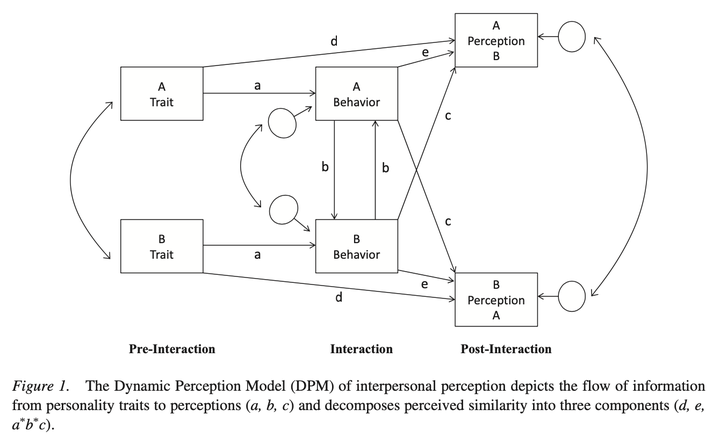Is perceived similarity more than assumed similarity? An interpersonal path to seeing similarity between self and others

Abstract
People perceive similarity between their own personality characteristics and the personality characteristics of others. This association has sometimes been labeled “assumed similarity,” reflecting the interpretation that it is a cognitive bias. Another possibility, however, is an interpersonal path to perceived similarity: personality traits that are manifested in behavior may elicit similar or dissimilar behavior from others, and people form perceptions based on what they have elicited. Drawing on theories of interpersonal perception and interpersonal theory, we proposed and tested for evidence of such perceiver-elicited similarity effects, as well as trait and state assumed similarity. Previously unacquainted participants (N = 322) completed personality assessments, interacted in dyads the next day, and then reported perceptions of each other’s personalities. The results showed broad support for the expression and accurate perceptions of most Big Five domains and facets. The preregistered directional hypotheses for behavior elicitation and perceiver-elicited similarity were supported for 3 of 5 traits. Participants interpersonally elicited and then accurately perceived similarity in sociability and openness, and dissimilarity in assertiveness. We also found evidence for assumed similarity for agreeableness and energy level, but participants did not elicit similar behavior from their partners for those traits. We discuss implications for treating perceived similarity as a dynamic, multicomponent phenomenon, and the possibility that assumed similarity emerges from the repeated experience of interpersonally elicited and perceived similarity.